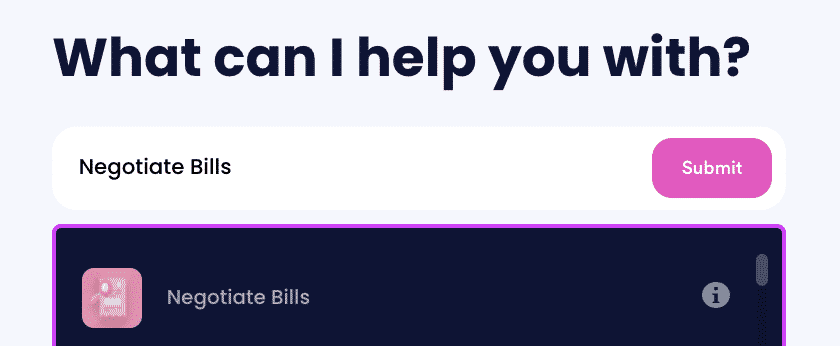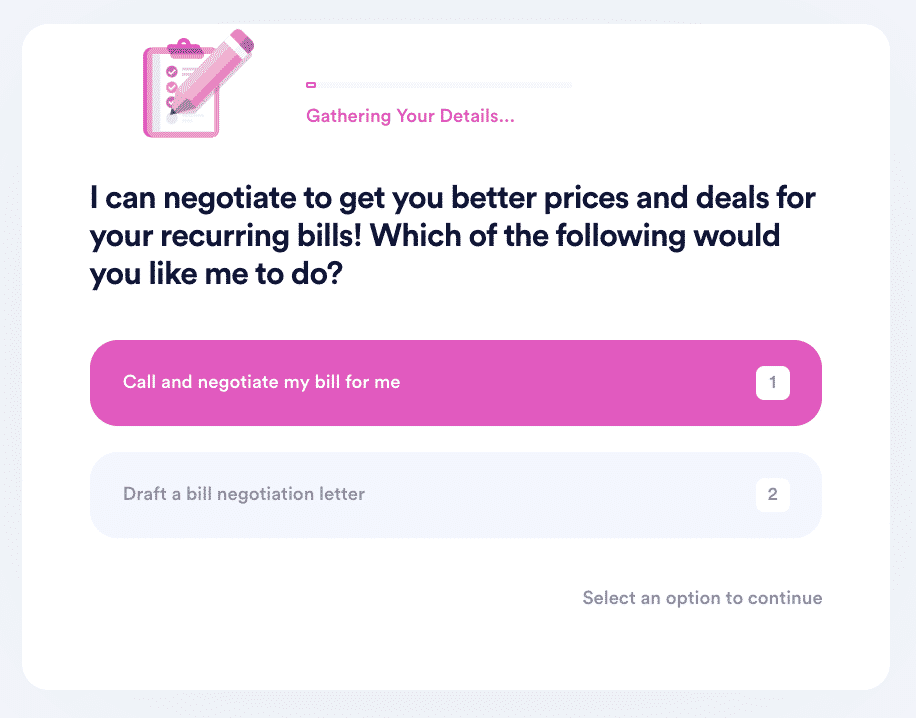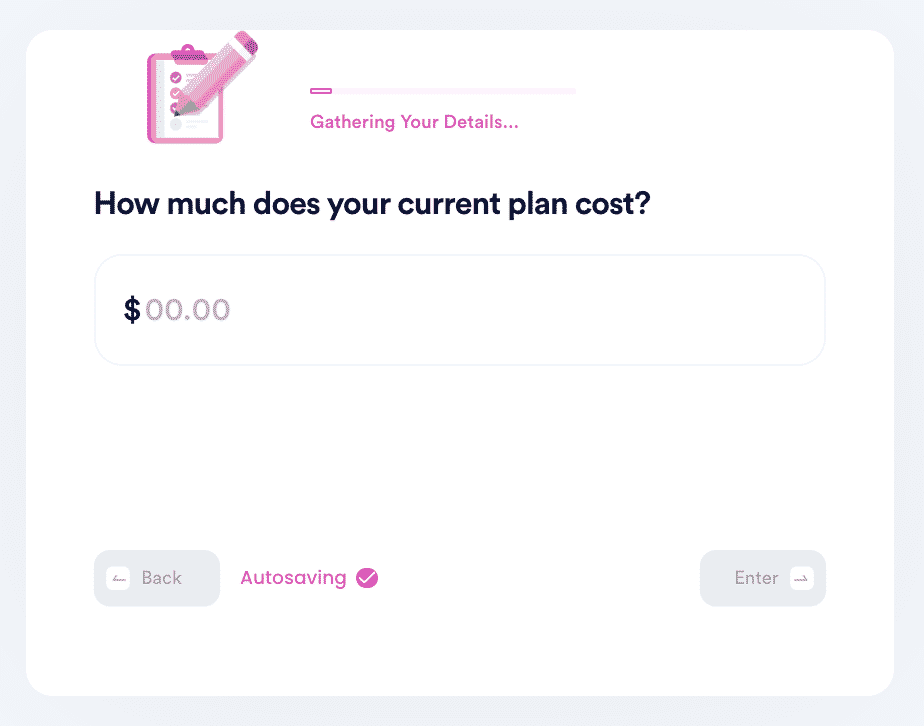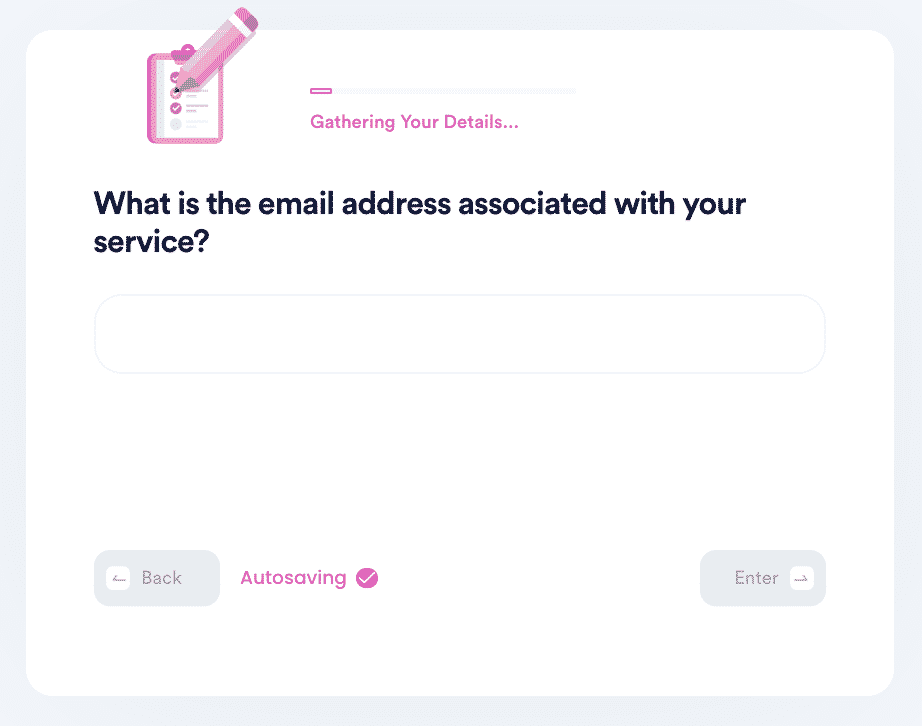Worried You'll Miss This Month's AEP Bill? Get Help from DoNotPay!
Running behind on the bills this month? You aren't the only one. Whether this is the first time or you've been stuck with a past due balance for months, DoNotPay can help. Inability to keep up with energy expenses is a growing problem, with more than 20% of Americans affected. If you need an , DoNotPay can help you negotiate one.
Breaking Down Your AEP Bill
AEP operates seven different regional providers:
| 1. AEP Ohio | https://www.aepohio.com/
(800) 672-2231 |
| 2. AEP Texas | https://www.aeptexas.com/
(866) 223-8508 |
| 3. Appalachian Power | https://www.appalachianpower.com/
(800) 956-4237 |
| 4. Indiana Michigan Power | https://www.indianamichiganpower.com/
Indiana: (800) 311-4634 Michigan: (800) 311-6424 |
| 5. Kentucky Power | https://www.kentuckypower.com/
(800) 572-1113 |
| 6. Public Service Company of Oklahoma | https://www.psoklahoma.com/
(888) 216-3523 |
| 7. Southwestern Electric Power Company | https://www.swepco.com/
(888) 216-3523 |
Bills from each of these providers will be similar with the exception of AEP Texas.
Payment Extensions and Arrangements
AEP customers who do not pay their balance in full by the due date can be charged up to 1.5% of the outstanding amount as a late fee. To avoid these late fees, you have two options:
- Payment extensions
- Payment arrangements
If you do not have an overdue balance, but need some extra time to pay your bill in full, you can request a payment extension. This grants you some additional time for your current bill only. It does not change the due date on subsequent bills.
If you have an overdue balance and aren't sure how you can catch up, request a payment arrangement. Your past-due balance will be spread out over future statements, allowing you to lessen the impact on your monthly finances.
Finding the Funds for Your AEP Bill
If you consistently have trouble paying your bill because it's unpredictable or you just don't have the necessary income, AEP has three programs that can help you cover the cost of your electricity:
- Average Monthly Payment (AMP)
- Budget Billing
- Neighbor to Neighbor
Average Monthly Payment Program
If your seasonal energy usage makes it , you can enroll in the Average Monthly Payment Program to pay a consistent amount every month. The amount you pay is calculated using the average of your last 12 bills, so your payment doesn't fluctuate too much month-to-month. Any difference is carried over as a credit or charge to your account.
Budget Billing
Some AEP customers may have Budget Billing available in their area, where they pay in installments based on their historical energy usage. It is similar to the Average Monthly Payment Program because you have a consistent payment amount, but the amount is only recalculated every four months, which may leave you with a larger difference to pay at the end of the year.
Neighbor to Neighbor
AEP works with Dollar Energy Fund in some service areas to provide grants to customers unable to pay their bills. Grants are sourced from donations from AEP customers. Eligibility conditions vary by location, but may include:
- A minimum balance overdue
- Minimum amount paid on the account
- Maximum income, determined by federal poverty guidelines or local median income
Grant amounts also vary by location. Only one grant may be received per calendar year.
PIPP Plus
AEP Ohio customers have additional resources available to them. The state offers a Percentage of Income Payment Plan (PIPP) to reduce the financial obligation of participating families. If your home runs entirely on electricity, you will pay 10% of your income to your electricity. If you run on both electricity and gas, you will pay 5% to each.
PIPP customers can have any outstanding balances removed if they make 24 payments in full and on time. If you make a late payment, you will not get credit for that month and you must make up the amount by your PIPP anniversary date for continued eligibility. To be eligible, your income must be no greater than 150% of the federal poverty amount.
LIHEAP
The Low-Income Home Energy Assistance Program (LIHEAP) is a federally-funded program intended to help families with the cost of heating or cooling their homes with electricity or gas. Financial eligibility varies by state, and the availability of grants may vary by season.
Make a Way with DoNotPay
Do you need immediate relief? Don't waste your time reading eligibility requirements for each AEP program - let DoNotPay submit a request for you! There are only four steps between you and a completed letter:
- Go to the Negotiate Bills product on DoNotPay.

- Choose whether you want us to call and negotiate your bill for you or send a bill negotiation letter on your behalf.

- Provide the details that will help us negotiate your bill including the company name and how much your current plan costs.

- Enter your contact information, including email, address, and phone number.

At DoNotPay, our expertise is not limited to electric bills. We can help with all sorts of expenses, like your:
- Medical bills
- Internet service
- Cell phone bills
- Gas bills
- And more!
Leave all the work to us! We'll fight for a lower bill for you!
 By
By